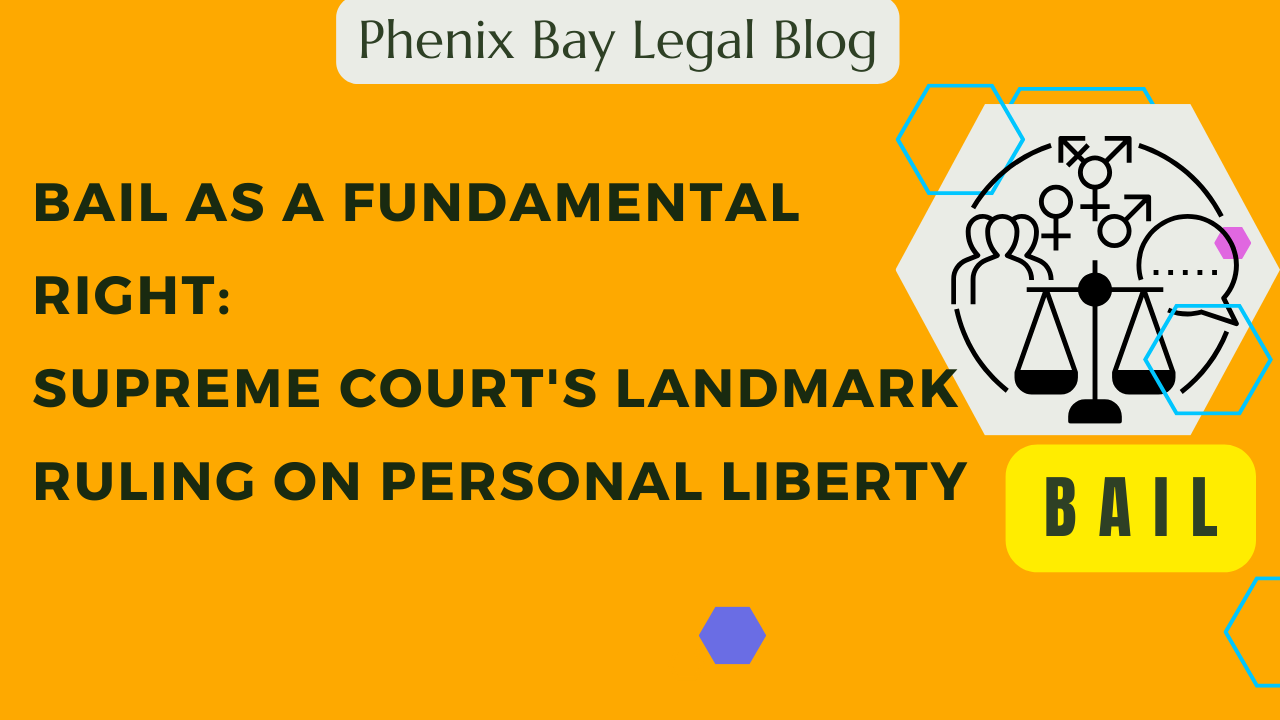
Bail as a Fundamental Right: Supreme Court's Landmark Ruling on Personal Liberty
Recently, the Supreme Court of India reaffirmed this right in a ground breaking judgment, emphasizing the maxim: "Bail is the rule, jail is the exception."
Bail as a Fundamental Right: Supreme Court's Landmark Ruling on Personal Liberty
At the heart of democracy lies the principle of personal liberty, protected by Article 21 of the Indian Constitution. Recently, the Supreme Court of India reaffirmed this right in a ground breaking judgment, emphasizing the maxim: "Bail is the rule, jail is the exception." This judgment has far-reaching implications, especially under stringent laws like the Unlawful Activities (Prevention) Act (UAPA), which often limit an accused's right to bail.
The Case in Focus: Jalaluddin Khan v. Union of India Supreme Court of India Criminal Appeal No. 3173 Of 2024
The case involved an individual accused under the Indian Penal Code (IPC) and UAPA, where the prosecution alleged connections with banned organizations. The Special Court and the High Court denied bail, citing the stringent provisions of UAPA, despite the absence of direct evidence linking the accused to terror activities.
The Supreme Court overturned these decisions, granting bail and emphasizing a critical balance between individual freedoms and state security interests.
Key Observations by the Supreme Court
Presumption of Innocence:
The bench, led by Justices Abhay S. Oka and Augustine George Masih, highlighted that pre-trial detention should not become punitive. Until proven guilty, an individual remains innocent.
Judicial Discretion and Evidence:
Courts must carefully evaluate the evidence before extending detention. In this case, the bench noted that the absence of substantial evidence rendered the accusations insufficient to deny bail.
Personal Liberty under Article 21:
The judgment underscored that arbitrary denial of bail violates the constitutional right to life and personal liberty. Procedural fairness and adherence to statutory provisions are paramount.
Special Statutes and Bail:
Even under stringent laws like the UAPA, where bail provisions are restricted, courts must ensure adherence to principles of justice. A rigid interpretation of such laws can infringe upon fundamental rights.
Legal Framework Surrounding Bail in India: A Lawyer's Perspective
The Supreme Court's recent judgment on bail aligns with India’s evolving legal framework, emphasizing the balance between individual liberty and societal interests. Let’s analyze the key legal principles and statutes governing bail in India.
- Bhartiya Nagarik Suraksha Sanhita (BNSS), 2023
The BNSS, 2023, recently introduced as a replacement for the Code of Criminal Procedure (CrPC), retains the foundational principles of bail while incorporating modernized provisions:
Bailable Offenses
- Definition: These are offenses where the accused has a statutory right to bail. Examples include minor crimes such as public nuisance or petty theft.
- Automatic Right to Bail: For bailable offenses, the accused can secure bail as a matter of right by furnishing sureties or providing an undertaking.
- Judicial Role: In such cases, the judiciary has limited discretion and is required to ensure procedural compliance.
Non-Bailable Offenses
- Definition: These include serious offenses, such as those involving grievous harm, severe economic crimes, or national security concerns.
- Judicial Discretion: Bail for non-bailable offenses is not a right and depends on judicial evaluation of:
- Prima Facie Evidence: The strength of evidence presented in the charge sheet.
- Likelihood of Flight Risk: Whether the accused might abscond.
- Witness Tampering: Risk of influencing or threatening witnesses.
- Public Interest: The severity of the crime and its societal impact.
- Stringency in Grave Crimes: Courts must balance personal liberty with public safety and the sanctity of justice.
- Special Laws like UAPA and POCSO
Certain laws in India impose stricter conditions for granting bail to ensure public safety and the integrity of judicial processes in sensitive cases.
Unlawful Activities (Prevention) Act, 1967 (UAPA)
- Bail Provisions: UAPA significantly restricts bail for individuals accused of terrorism or activities prejudicial to India’s sovereignty.
- Requirements for Bail:
- The prosecution must establish a prima facie case.
- Courts assess whether the accusations are rooted in credible evidence or vague allegations.
- Judicial Vigilance: The Supreme Court emphasized that despite stringent provisions, bail cannot be denied arbitrarily, especially in cases lacking substantial evidence.
Protection of Children from Sexual Offenses Act, 2012 (POCSO)
- Objective: To protect minors from sexual abuse, the Act includes stringent measures to safeguard victims and prevent misuse of the law.
- Bail Challenges: Courts often face a delicate task of ensuring justice for victims while safeguarding the rights of the accused, especially in cases involving consensual relationships between minors close in age.
- Overarching Principles Under the Code of Criminal Procedure (CrPC)
While BNSS, 2023 aims to modernize procedures, the principles governing bail continue to reflect the CrPC’s core tenets.
Non-Arbitrary Denial of Bail
The CrPC mandates that bail decisions must adhere to principles of fairness and judicial reasoning:
- Presumption of Innocence: Until proven guilty, an individual is presumed innocent.
- Right to Prepare Defense: Prolonged incarceration can hinder the accused's ability to consult legal counsel, collect evidence, or build a defense.
Grounds for Granting or Denying Bail
- Nature and Gravity of Offense: Serious crimes like murder or terrorism warrant stricter scrutiny.
- Probability of Conviction: Courts consider the likelihood of conviction based on evidence.
- Conduct of the Accused: Past criminal record, behavior during previous bail periods, and compliance with court orders influence decisions.
The Supreme Court’s Emphasis
In its recent judgment, the Court clarified:
- Bail is the Rule: Custodial detention is the exception and must be justified with clear, compelling reasons.
- Judicial Responsibility: Courts must act as gatekeepers, ensuring that special statutes are not misused to curtail personal liberty without justification.
- Need for Reform: The Court highlighted systemic delays in trials as a contributing factor to prolonged undertrial detention, urging lower courts to expedite proceedings where possible.
The legal framework on bail in India is designed to strike a balance between safeguarding individual liberties and ensuring societal order. Recent judicial pronouncements reaffirm that personal liberty cannot be compromised except in cases where the law unequivocally demands it. This nuanced approach ensures that laws like the UAPA and POCSO, while stringent, do not override constitutional rights. Lawyers and judiciary members must consistently evaluate the merit of each case, ensuring justice prevails.
Why This Judgment is Significant
Addressing Overcrowding in Prisons:
According to Prison Statistics India (2022), over 75% of inmates are undertrials, leading to severe overcrowding.
This judgment encourages courts to critically assess detention cases, thereby reducing unnecessary incarceration.
Human Rights Perspective:
Prolonged detention without trial often results in human rights violations, including poor living conditions, mental distress, and stigmatization.
Strengthening Rule of Law:
The judgment reaffirms the judiciary's role as the protector of constitutional rights, ensuring that national security does not become a pretext for curtailing personal liberties.
Impact on Vulnerable Groups:
A significant portion of undertrials comes from marginalized communities, with limited access to legal resources. This ruling underscores the need for an equitable judicial approach.
Challenges Highlighted by the Court
Misuse of Stringent Laws:
Special statutes like the UAPA are often criticized for being used indiscriminately, leading to unwarranted detentions.
The judgment calls for judicial vigilance in preventing misuse.
Delay in Trials:
Prolonged trials further exacerbate the issue of undertrial detention.
The Court emphasized the need for expediting judicial processes to ensure timely justice.
Judicial Accountability:
Lower courts must exercise discretion judiciously, ensuring that denial of bail is based on substantive grounds.
Arbitrary denials can erode public trust in the judicial system.
Implications for Legal Practitioners and Stakeholders
For Lawyers:
The ruling provides robust grounds to argue for bail in cases where evidence is weak.
Advocates must emphasize procedural violations and constitutional safeguards while contesting bail denials.
For Judiciary:
Judges must ensure that bail decisions are rooted in objectivity, fairness, and reasoning.
A uniform approach to bail under special statutes is crucial to maintaining judicial integrity.
For Policymakers:
The judgment calls for revisiting laws like the UAPA to strike a balance between security concerns and individual rights.
A Way Forward: Safeguarding Personal Liberty
This landmark ruling is a pivotal step toward upholding constitutional values in India’s criminal justice system. It calls for a broader discourse on reforming bail laws to ensure they are not misused to deny fundamental rights.
At Phenix Bay Legal, we strive to keep you informed about such critical legal developments. By understanding judgments like this, we can collectively work toward a fairer and more transparent justice system.
Stay updated with our blogs for detailed analyses of Supreme Court judgments, legal insights, and case strategies.
For more details and legal updates, follow us at Phenix Bay Legal.
Relevant Keywords:
Supreme Court Bail Judgment
Personal Liberty in India
UAPA Bail Provisions
Judicial Accountability
Article 21 Constitutional Safeguards
#SupremeCourtJudgment #BailIsTheRule #Personaliberty #Article21 #CriminalJustice #UAPA #LegalInsights #PhenixBayLegal
More >>

Jyoti Sharma vs. Vishnu Goyal & Anr. 2025 INSC 1099
This was a long running legal battle between a landlord and her tenants over a shop. The landlord, Jyoti Sharma, wanted her shop back for two main reasons: The tenants had stopped paying rent. She needed the shop to expand her family's business (her bonafide need).
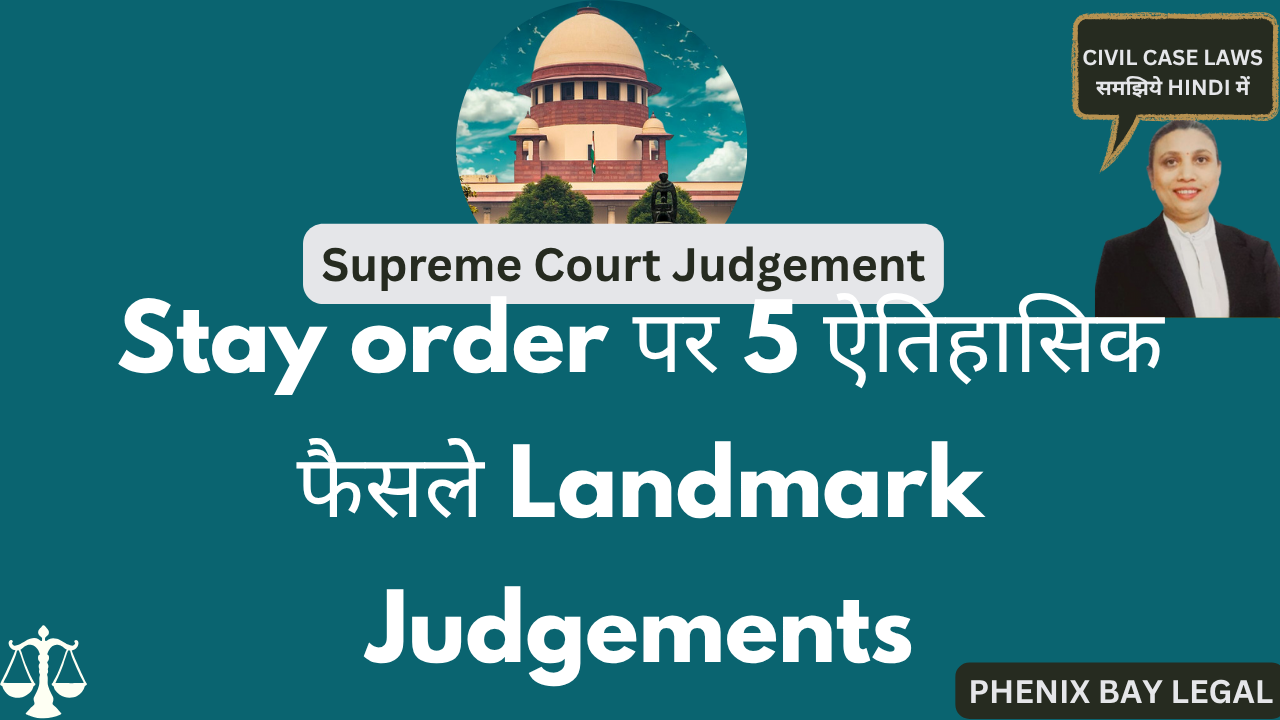
Landmark Judgement on Injunction
In civil, commercial, or even family disputes. But when is a simple injunction suit enough? When do you need to add a declaration of title? And how do courts balance urgency vs evidence in interim relief?
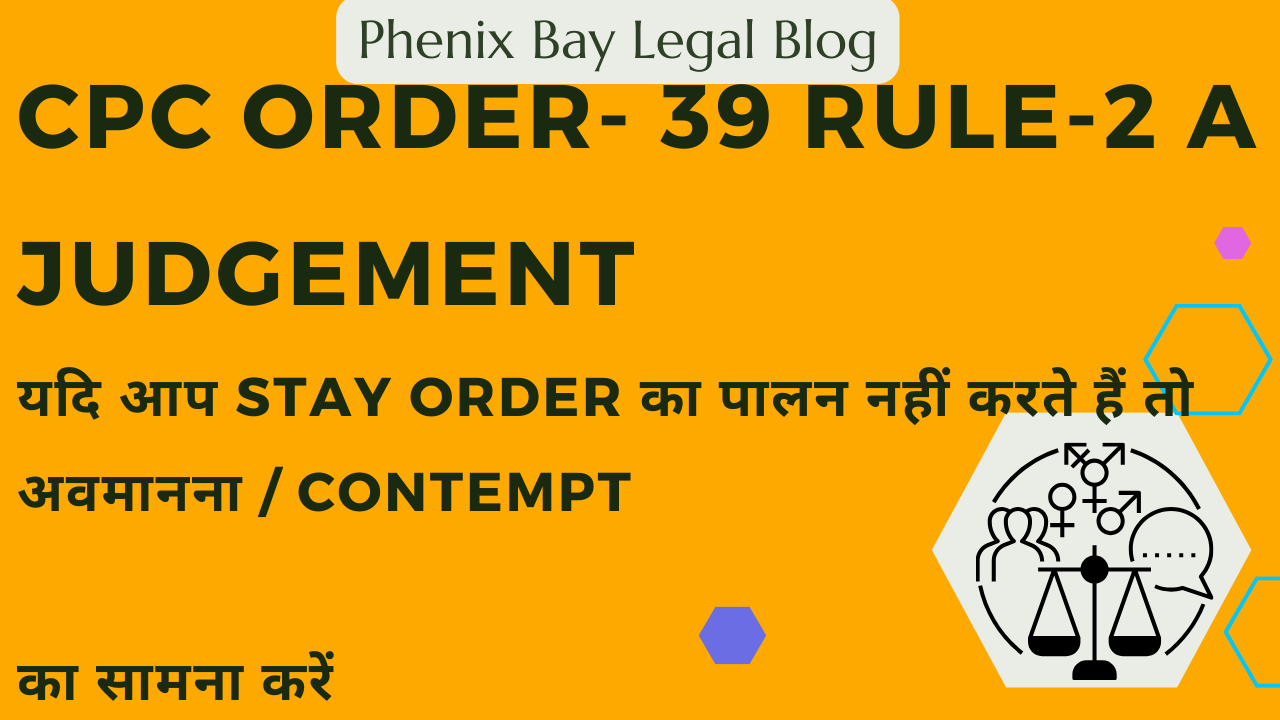
Case Analysis: Stay Order Violation and Contempt of Court by Supreme Court of India
Giving an undertaking to the court is equivalent to an order of injunction—any violation invites contempt proceedings.Injunction orders remain valid until formally vacated by a court—violation before vacation can lead to punishment.
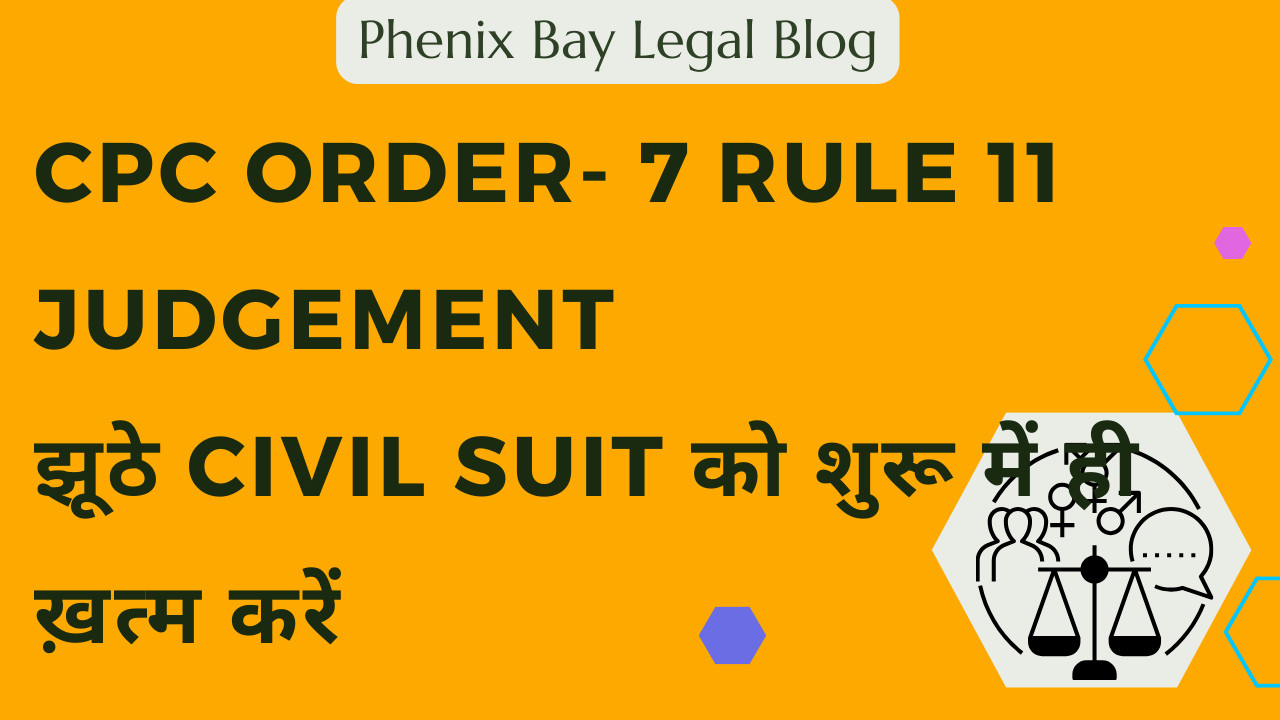
Order 7 Rule 11 of CPC Explanation in Land Mark Judgement
The Sopan Sukhdeo Sable judgment is a landmark ruling that reinforces Order 7 Rule 11 of CPC as a safeguard against frivolous and legally untenable claims. It highlights the importance of examining only the plaint’s contents to decide whether a suit should be dismissed at the threshold.
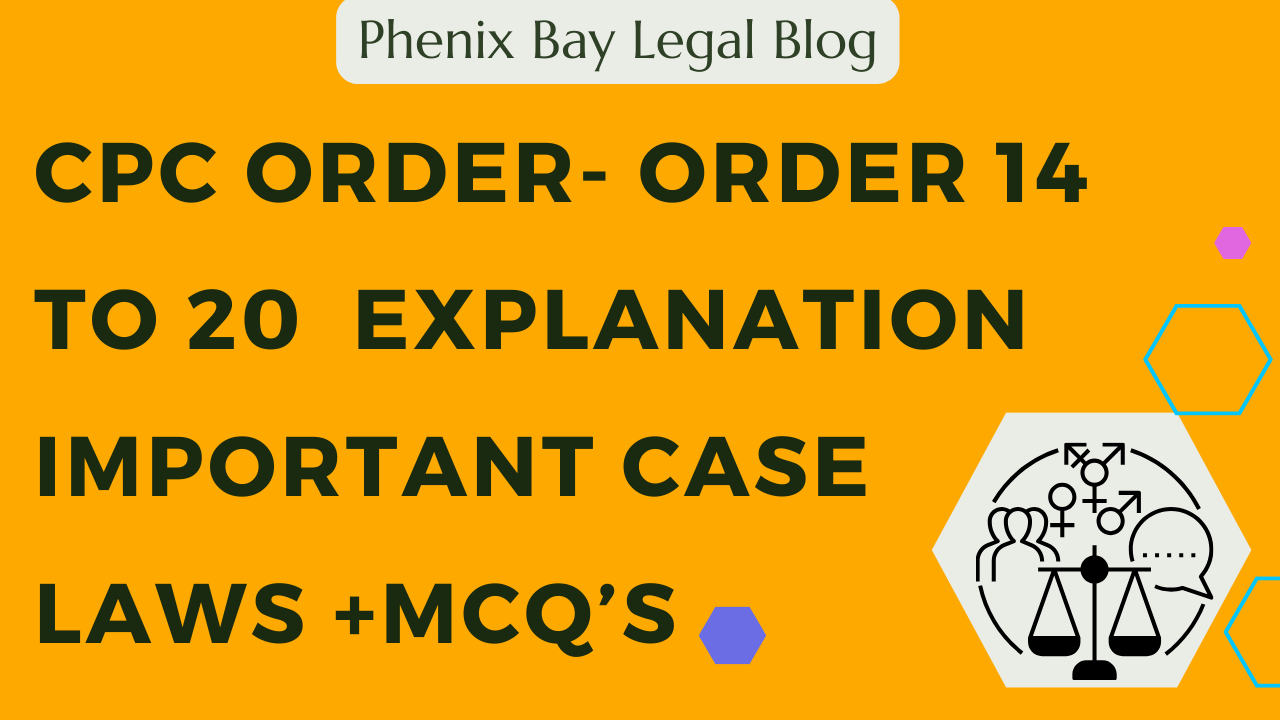
CPC Order- Order 14 to 20 Explanation IMPORTANT CASE LAWS +MCQ’S for Judiciary Exam Preparation
CPC Order- Order 14 to 20 Explanation IMPORTANT CASE LAWS +MCQ’S for Judiciary Exam Preparation
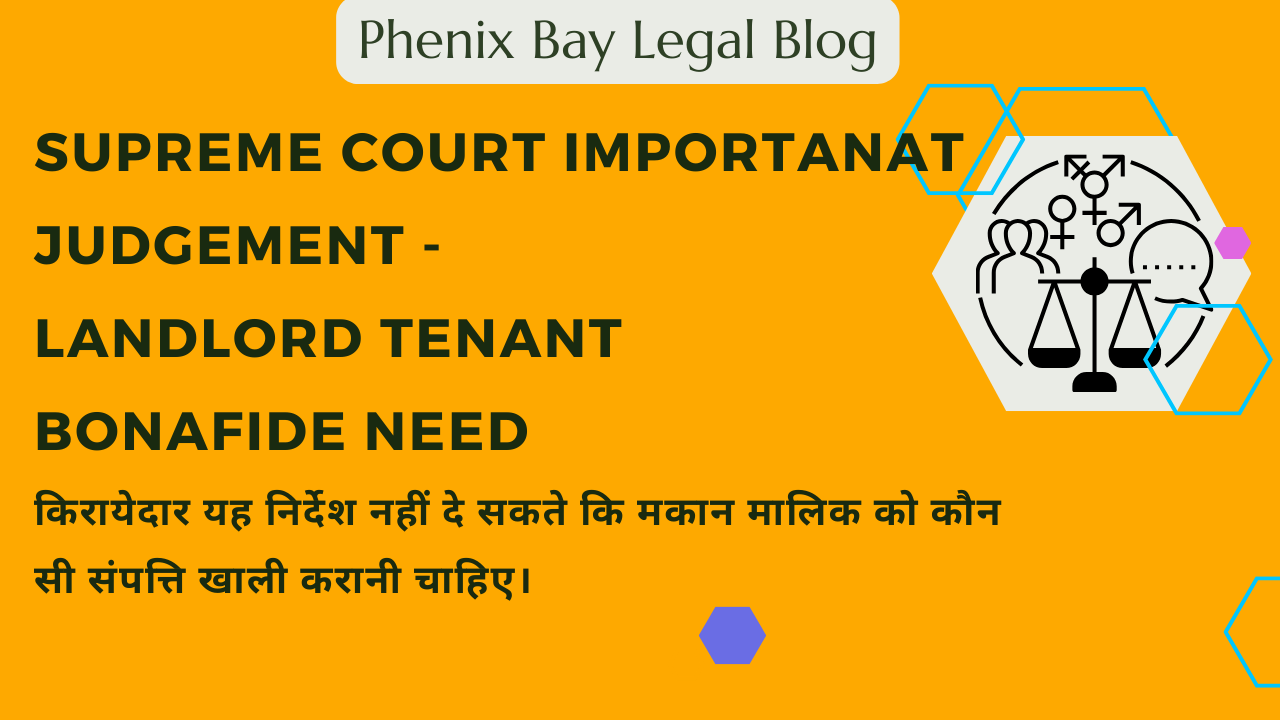
Supreme Court ImportanatJudgement - Landlord Tenant Bonafide need
This case involves a dispute over eviction of a tenant based on the bona fide need of the landlord. The Supreme Court ruled in favor of the landlord, reversing the High Court's decision. Below is a detailed breakdown of the judgment with relevant legal principles, precedents, and reasoning.